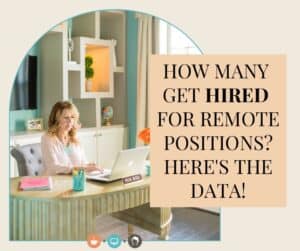Does Hire My Mom Offer Legitimate Jobs?

We are often asked, what makes Hire My Mom different from other job sites? And, are your jobs legitimate? To us, those questions are synonymous with one another because one of our biggest benefits for job seekers is that all of our jobs are legitimate! Each one is reviewed by a real person before going live, so you never have to worry about wasting time on a job that never existed.
That’s what we want you to know the most: finding the right job doesn’t have to feel overwhelming. At HireMyMom, we offer exclusive job listings, significantly less competition, and a commitment to being 100% scam-free — which we have been doing in North America for over 18 years. Unlike other platforms, HireMyMom is supported by real people — not automated systems — offering personalized service every step of the way.
Why HireMyMom Is Perfect for Job Seekers
If you’re searching for a remote job, navigating the endless sea of mega job sites can be exhausting. There are thousands of open jobs, lots of scams, and tons of competition. In fact, many job seekers have told us that they learned if they did not apply within the first few minutes of a job being listed, they were often never even fully considered for it just due to the sheer amount of applications.
With HireMyMom, job seekers can find a more focused and rewarding experience. One of the biggest advantages is the significantly lower competition. Unlike large platforms where hundreds or even thousands of candidates may apply for the same position, we offer a smaller, more curated pool of applicants. This means your resume and skills actually get noticed, increasing your chances of landing the job you want.
Another standout benefit is access to exclusive job listings. The jobs posted on HireMyMom are submitted directly by employers and, in most cases, aren’t found anywhere else online; this plays into the lower competition per job post as well. Lots of listings on mega sites are listed on multiple websites, increasing the competition exponentially. However, at Hire My Mom, these positions are often tailored for professionals seeking flexible, remote opportunities. It’s a great way to uncover hidden opportunities that aren’t flooded with applicants from every corner of the internet.
When it comes to safety and transparency, we take extra steps to ensure a scam-free environment. Each job posting is carefully reviewed, so you can feel confident knowing the opportunities are legitimate. Plus, unlike many platforms, HireMyMom doesn’t take commissions or surprise you with hidden fees. A small membership fee unlocks access to the site’s resources and exclusive listings, but there’s no additional cost to you once you land a job.
Finally, one of our biggest advantages according to job seekers is that you get to talk to a real person if you are having issues! That’s right, if you run into issues or just need some support, you get to chat with an actual human being.
Discover the HireMyMom Advantage TodayHireMyMom is the perfect solution for job seekers looking for a better way to connect. You will benefit from significantly less competition, exclusive remote job listings, and a platform that prioritizes safety with its 100% scam-free guarantee. Whether you’re searching for your next great job or a rewarding side hustle, HireMyMom simplifies the process and delivers results. Don’t settle for the frustration of traditional job platforms. Join the Hire My Mom family today!



